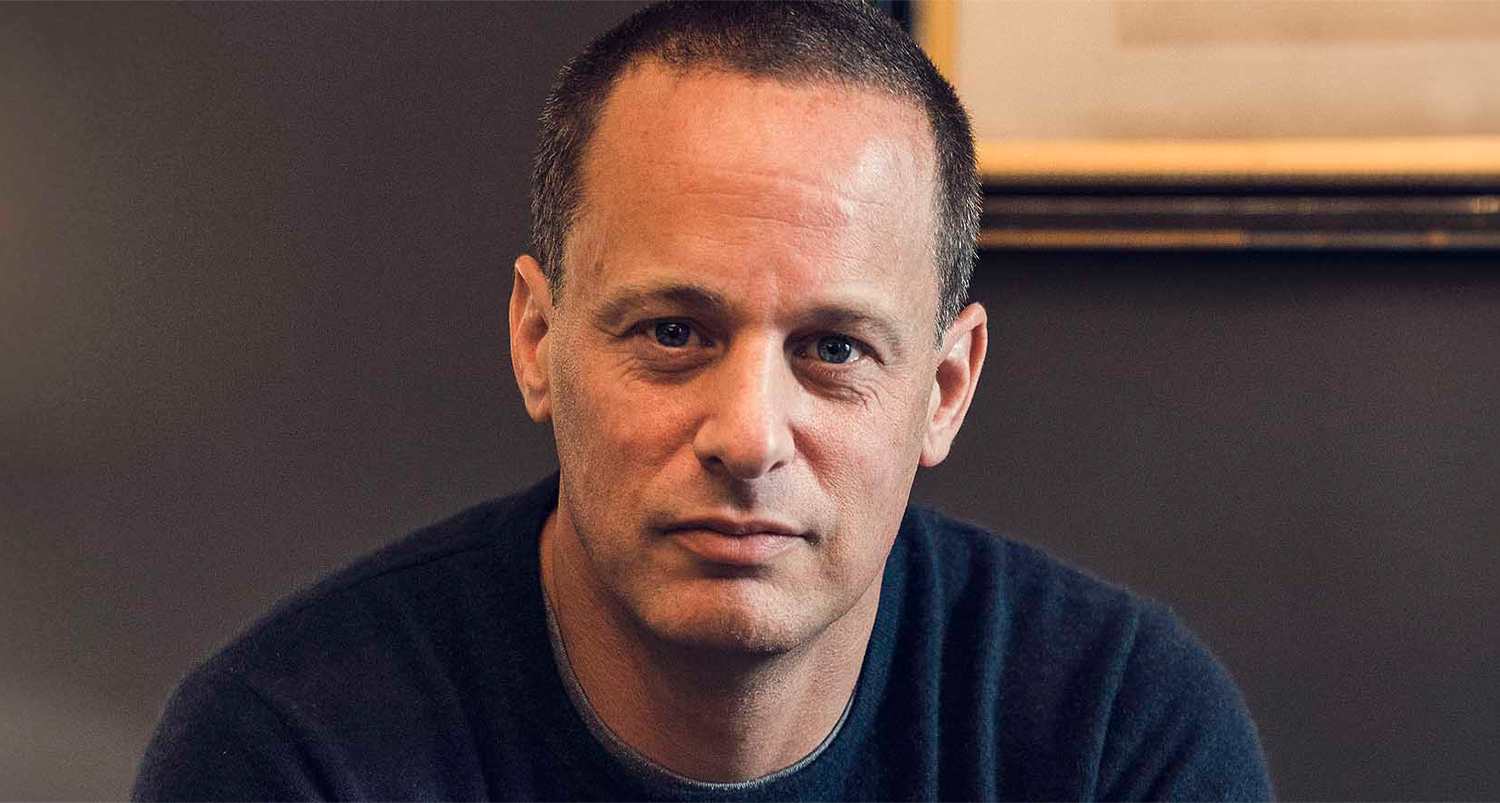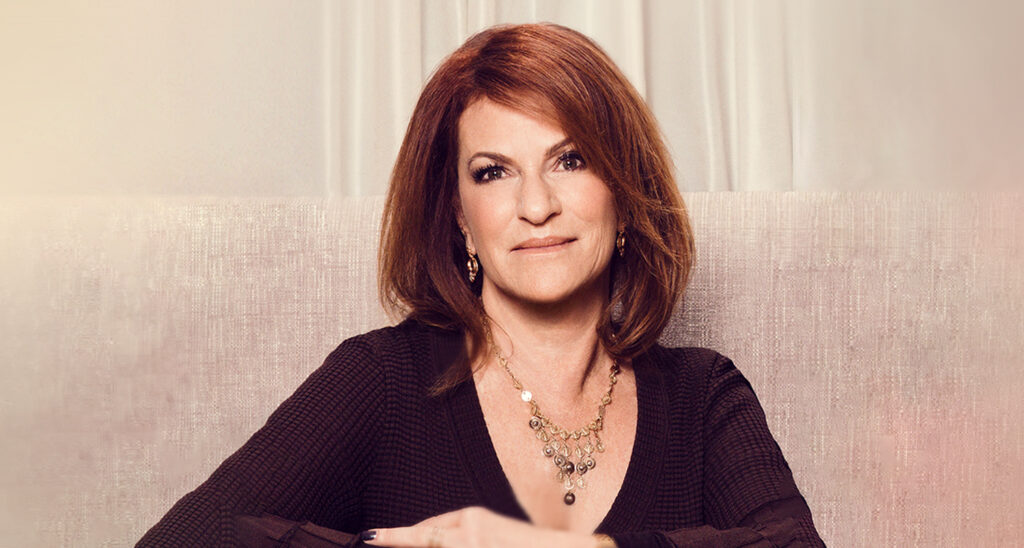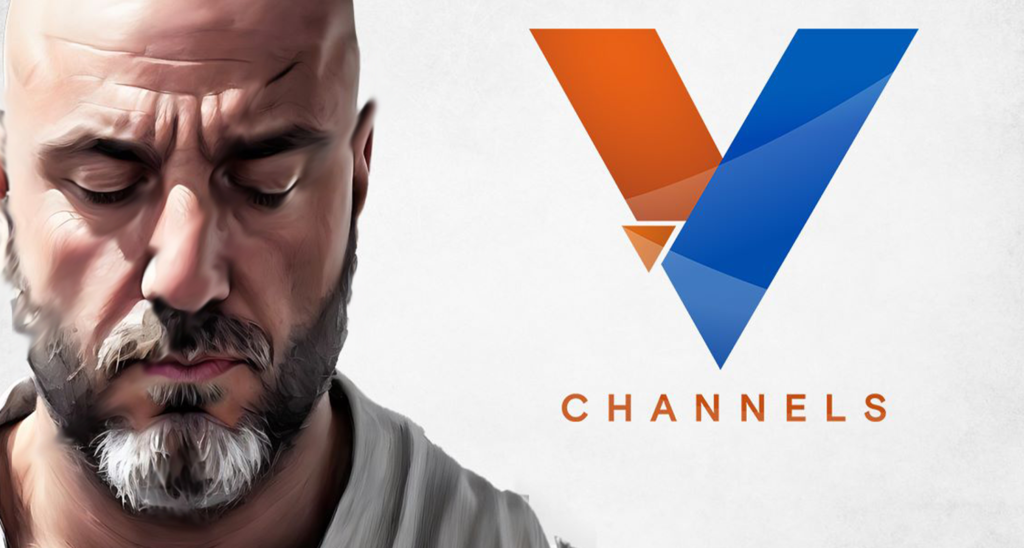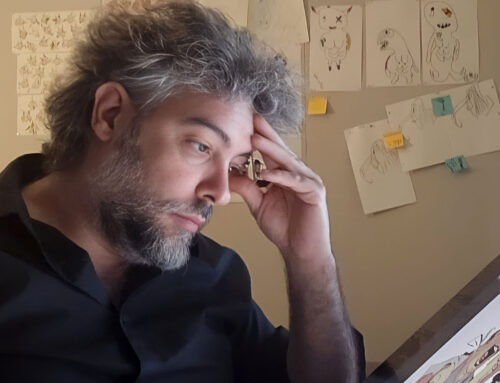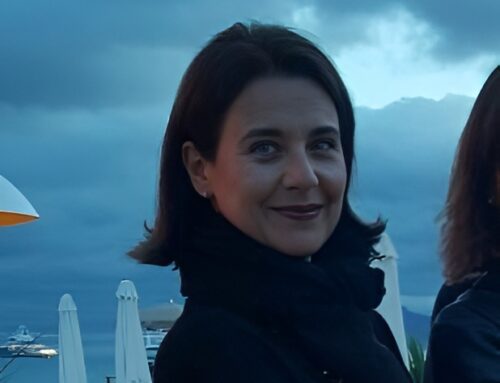In Conversation with Erik Barmack
To understand contemporary Hollywood’s international growth, you must consult Erik Barmack. He has worked in television and new media production and distribution for over 25 years. He founded Wild Sheep Content, a production, strategic growth, and packaging company that has sold twenty projects to ten global partners over its first year of operation.
Previously, as Netflix VP and head of the original international series, Barmack shaped today’s fiction TV business. He brought Netflix hits such as Spanish Money Heist and Italian Subburra, opening American streaming to globalization.
Mr. Barmack, let’s first talk about the writer’s strike. Do you think it could last a long time?
Issues on both sides need to be resolved, and people are far apart in their positions. I’m not anticipating a stop anytime soon.
Could it worsen with the possible upcoming strike of the DGA, the Director’s Union?
The issue is common and evolves around how producers and content creators can be paid fairly in today’s environment. The world is becoming more and more global. Today there are more opportunities but also more threats to people’s work. Writers and Directors have different touchpoints, but they all deal with what it means to be in a global media society.
Can this strike be an opportunity for producers working outside the US?
I’m pretty confident it’s going to create conversations between producers around the world and streamers. Let’s make an example. Ford and a few other American car companies were first and alone for decades. Then other car manufacturers opened around the world. At first, those car manufacturers were regional, but then Toyota came along, and others and the market changed forever.
The same is happening in Hollywood?
Yes. Everybody must know that the marketplace is global now, even if the discussion focuses on a local level. If Hollywood becomes uncompetitive globally, more work will shift to other countries. At the same time, if the people making content here is not fairly treated, it could create big problems within the industry.
Artificial Intelligence. That wasn’t the main reason for the strike, but now AI is received as a threat. What’s your take on that? Could a machine be able to replace creativity and artistic work?
I don’t believe robots can create art, but AI can impact part of a writer’s work: research, for example. AI can help in the description of a character or the thinking of a story structure. When it comes to actual acts of art, I think you need human feeling and human input. Still, research is a big part of the creative process, and I feel AI will help with that.
You have been involved with international production for a long time. In Italy, you worked on TV series like Gomorrah and Subburra. From your point of view, what are the opportunities, and what are the aspects Italy needs to work on?
Italy has an unbelievable tradition of great cinema and excellent TV. On the television side, it feels what’s being exported has been mostly crime shows: 000, Gomorrah, and Suburra, for example. They’re beautifully shot and beautifully pulled crime stories. The future is bright for Italian content, but it could benefit by growing into other genres.
Is this monothematic production connected to Italy being exported on TV as “a mafia country?”: The Sopranos, The Godfather… Is that what Italian content creators believe? That they only can sell crime stories?
There may be some psychology working that way. It’s also a matter of timing. If you go back before streaming, two or three broadcasters commissioned fiction, and there were two to four slots per year to cover. So, eight to ten shows were created a year, and there was tremendous pressure for those shows to be broad enough and to cut through. Now things are changing, which could encourage future development in other genres.
Let’s talk about the company you have founded, Wild Sheep.
We’re very focused on commercially minded big IP stories outside the US. We just started shooting a production in Japan based on a video game called Yakuza. In Scandinavia, we have a female action/mystery series based on the novels of Emily Shep; we’ve been working with Camilla Läckberg, one of the top crime writers in Europe, and in the UK, with Harlan Coben; we’re doing a documentary series for Amazon on Indian hip-hop artist AP Dhillon. The common theme of many of these productions is a big IP that grounds in one particular market but is also known in other markets. We’re internationally minded and focused on books and games as a grounding force for our productions.
Is the Italian-American project Sweet Paprika still on?
We’re still working on this great cartoon by Italian cartoonist Mirka Andolfo. We’re still trying to figure out how to turn it into an animated series.
What are the three essential ingredients for an excellent international co-production?
I would say big IP, relevant in multiple territories, elite production services companies that can execute on a complicated vision, and relatively popular genres. In Wild Sheep, we’re not doing political or historical shows. We want contemporary mystery, female-led thrillers. We like action shows. We’re shamelessly into genres that we think are going to be popular.
How’s the business model of your company?
We can develop and finance parts of production, and we are “not greedy.” We are happy to share projects with other production companies. We package, we set up, and we work with PSCs around the world. We have an advantage in being in Los Angeles because we can talk to many buyers here and then work with production services companies from around the world. The combination of those things is quite powerful because Hollywood is trying to be more internationally connected, and international production companies and studios are trying to be more connected to Hollywood.
When you were at Netflix, you produced Club of Crows and 3%. Those shows were the first venture of Netflix in the international landscape. You changed the game. Was that difficult to make Netflix in particular or, in general, American producers and distributors understand that the US could not just be an exporter but also needed to import content?
The argument that we made at the time was that Netflix was going to be a global company and that it wouldn’t quite feel right if you’re expecting 70 or 80% of your audience to be outside of the US, but every show that you’re creating was inside the US. The math didn’t make sense: 3 or 4% of the world’s population is in the US, but 80 to 90% of the television produced and globally distributed was from Hollywood. So we tried to figure out how to be good at every other production market. At first, it was more of an experiment. The production budgets in Mexico and other places were significantly lower. So we tried to do something different from what that market was proposing – not doing telenovelas in Mexico, for example – trying, in the meantime, to learn from it.
When did you understand the experiment was successful?
The “aha” moment was when people at Netflix realized that those stories would travel. When we started doing shows like Elite, Casa del Papel, and Subburra, we rapidly understood that those shows had audiences worldwide that were as big as America’s.
You mentioned telenovelas. Wild Sheep is now involved with Latin America productions. Can this model replicate somehow for Italy?
The trick with Italy is that there are fewer buyers than in Latin America, but that can quickly change and probably will change over time.
Those have been a few difficult years. Covid first, and now the strike and the consolidations. The industry is changing very much and very fast. How do you imagine the future of this business?
It’s going to be a turbulent time, to be honest with you; there were a lot of production companies assuming that this growth would extend forever, and then we have seen a reduction. The streamers assumed they could spend their way into market share, and now you’ve seen a slowdown. But in the long term, I think the conditions are pretty favorable, especially for international producers. I don’t think we’re returning to a world where globally distributed shows are mainly American. If you look at the last five years of television, just the diversity of stories, where those stories are coming from, and the courage is trending up. In the long term, let’s say in the next 20 years, this is good news for producers and consumers, but it will be choppy for a couple of years.
Share:
To understand contemporary Hollywood’s international growth, you must consult Erik Barmack. He has worked in television and new media production and distribution for over 25 years. He founded Wild Sheep Content, a production, strategic growth, and packaging company that has sold twenty projects to ten global partners over its first year of operation.
Previously, as Netflix VP and head of the original international series, Barmack shaped today’s fiction TV business. He brought Netflix hits such as Spanish Money Heist and Italian Subburra, opening American streaming to globalization.
Mr. Barmack, let’s first talk about the writer’s strike. Do you think it could last a long time?
Issues on both sides need to be resolved, and people are far apart in their positions. I’m not anticipating a stop anytime soon.
Could it worsen with the possible upcoming strike of the DGA, the Director’s Union?
The issue is common and evolves around how producers and content creators can be paid fairly in today’s environment. The world is becoming more and more global. Today there are more opportunities but also more threats to people’s work. Writers and Directors have different touchpoints, but they all deal with what it means to be in a global media society.
Can this strike be an opportunity for producers working outside the US?
I’m pretty confident it’s going to create conversations between producers around the world and streamers. Let’s make an example. Ford and a few other American car companies were first and alone for decades. Then other car manufacturers opened around the world. At first, those car manufacturers were regional, but then Toyota came along, and others and the market changed forever.
The same is happening in Hollywood?
Yes. Everybody must know that the marketplace is global now, even if the discussion focuses on a local level. If Hollywood becomes uncompetitive globally, more work will shift to other countries. At the same time, if the people making content here is not fairly treated, it could create big problems within the industry.
Artificial Intelligence. That wasn’t the main reason for the strike, but now AI is received as a threat. What’s your take on that? Could a machine be able to replace creativity and artistic work?
I don’t believe robots can create art, but AI can impact part of a writer’s work: research, for example. AI can help in the description of a character or the thinking of a story structure. When it comes to actual acts of art, I think you need human feeling and human input. Still, research is a big part of the creative process, and I feel AI will help with that.
You have been involved with international production for a long time. In Italy, you worked on TV series like Gomorrah and Subburra. From your point of view, what are the opportunities, and what are the aspects Italy needs to work on?
Italy has an unbelievable tradition of great cinema and excellent TV. On the television side, it feels what’s being exported has been mostly crime shows: 000, Gomorrah, and Suburra, for example. They’re beautifully shot and beautifully pulled crime stories. The future is bright for Italian content, but it could benefit by growing into other genres.
Is this monothematic production connected to Italy being exported on TV as “a mafia country?”: The Sopranos, The Godfather… Is that what Italian content creators believe? That they only can sell crime stories?
There may be some psychology working that way. It’s also a matter of timing. If you go back before streaming, two or three broadcasters commissioned fiction, and there were two to four slots per year to cover. So, eight to ten shows were created a year, and there was tremendous pressure for those shows to be broad enough and to cut through. Now things are changing, which could encourage future development in other genres.
Let’s talk about the company you have founded, Wild Sheep.
We’re very focused on commercially minded big IP stories outside the US. We just started shooting a production in Japan based on a video game called Yakuza. In Scandinavia, we have a female action/mystery series based on the novels of Emily Shep; we’ve been working with Camilla Läckberg, one of the top crime writers in Europe, and in the UK, with Harlan Coben; we’re doing a documentary series for Amazon on Indian hip-hop artist AP Dhillon. The common theme of many of these productions is a big IP that grounds in one particular market but is also known in other markets. We’re internationally minded and focused on books and games as a grounding force for our productions.
Is the Italian-American project Sweet Paprika still on?
We’re still working on this great cartoon by Italian cartoonist Mirka Andolfo. We’re still trying to figure out how to turn it into an animated series.
What are the three essential ingredients for an excellent international co-production?
I would say big IP, relevant in multiple territories, elite production services companies that can execute on a complicated vision, and relatively popular genres. In Wild Sheep, we’re not doing political or historical shows. We want contemporary mystery, female-led thrillers. We like action shows. We’re shamelessly into genres that we think are going to be popular.
How’s the business model of your company?
We can develop and finance parts of production, and we are “not greedy.” We are happy to share projects with other production companies. We package, we set up, and we work with PSCs around the world. We have an advantage in being in Los Angeles because we can talk to many buyers here and then work with production services companies from around the world. The combination of those things is quite powerful because Hollywood is trying to be more internationally connected, and international production companies and studios are trying to be more connected to Hollywood.
When you were at Netflix, you produced Club of Crows and 3%. Those shows were the first venture of Netflix in the international landscape. You changed the game. Was that difficult to make Netflix in particular or, in general, American producers and distributors understand that the US could not just be an exporter but also needed to import content?
The argument that we made at the time was that Netflix was going to be a global company and that it wouldn’t quite feel right if you’re expecting 70 or 80% of your audience to be outside of the US, but every show that you’re creating was inside the US. The math didn’t make sense: 3 or 4% of the world’s population is in the US, but 80 to 90% of the television produced and globally distributed was from Hollywood. So we tried to figure out how to be good at every other production market. At first, it was more of an experiment. The production budgets in Mexico and other places were significantly lower. So we tried to do something different from what that market was proposing – not doing telenovelas in Mexico, for example – trying, in the meantime, to learn from it.
When did you understand the experiment was successful?
The “aha” moment was when people at Netflix realized that those stories would travel. When we started doing shows like Elite, Casa del Papel, and Subburra, we rapidly understood that those shows had audiences worldwide that were as big as America’s.
You mentioned telenovelas. Wild Sheep is now involved with Latin America productions. Can this model replicate somehow for Italy?
The trick with Italy is that there are fewer buyers than in Latin America, but that can quickly change and probably will change over time.
Those have been a few difficult years. Covid first, and now the strike and the consolidations. The industry is changing very much and very fast. How do you imagine the future of this business?
It’s going to be a turbulent time, to be honest with you; there were a lot of production companies assuming that this growth would extend forever, and then we have seen a reduction. The streamers assumed they could spend their way into market share, and now you’ve seen a slowdown. But in the long term, I think the conditions are pretty favorable, especially for international producers. I don’t think we’re returning to a world where globally distributed shows are mainly American. If you look at the last five years of television, just the diversity of stories, where those stories are coming from, and the courage is trending up. In the long term, let’s say in the next 20 years, this is good news for producers and consumers, but it will be choppy for a couple of years.



